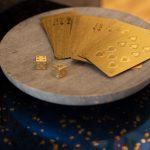Support our educational content for free when you purchase through links on our site. Learn more
20 Mind-Bending Paradoxes with Explanations That Will Twist Your Mind 🤯 (2025)
Have you ever stumbled upon a statement so puzzling that it makes your brain do somersaults? Welcome to the fascinating world of mind-bending paradoxes—those quirky logical puzzles that defy common sense and challenge everything you thought you knew about reality. From ancient Greek riddles about motion to modern conundrums about time travel and infinity, paradoxes have captivated thinkers, magicians, and curious minds alike for centuries.
But here’s the kicker: some paradoxes don’t just confuse—they reveal deep insights about how our minds work and how the universe ticks. Take the Interesting Number Paradox, for example, which claims every number is interesting simply because the first “uninteresting” number would itself be interesting. Mind blown yet? Stick around as we unravel 20 of the most perplexing paradoxes, explain their baffling logic, and show you how magicians and educators at Mind Trick™ use these puzzles to dazzle audiences and sharpen critical thinking.
Key Takeaways
- Paradoxes challenge intuition by presenting statements or situations that lead to contradictory or impossible conclusions despite valid reasoning.
- They come in many types: logical, mathematical, philosophical, physical, and visual paradoxes each explore different facets of reality and thought.
- Classic paradoxes like Zeno’s Dichotomy, The Grandfather Paradox, and The Ship of Theseus reveal deep questions about motion, time, and identity.
- Paradoxes are not just puzzles—they’re tools to boost critical thinking, inspire creativity, and understand cognitive biases.
- Magicians harness paradoxical logic to create illusions that bend perception and defy expectations.
- For magic enthusiasts, explore our curated Card Tricks and Magic Psychology resources to see paradoxes in action.
- Interested in magic gear? Check out Card Trick Kits on Amazon or Levitation Props to add some paradox-inspired flair to your performances.
Ready to have your mind twisted and your curiosity ignited? Let’s dive in!
Table of Contents
- ⚡️ Quick Tips and Facts
- 📜 Unraveling the Enigma: A Brief History and Philosophical Roots of Paradoxes
- 🤯 What Exactly Is a Paradox? Defining the Mind-Bending Concepts
- 💡 Why Do Paradoxes Matter? The Power of Puzzling Logic
- 분류 Types of Paradoxes: A Classification for Clarity
- ✨ Our Top 20 Mind-Bending Paradoxes Explained (and How to Wrap Your Head Around Them!)
- 🏃♀️ Zeno’s Paradoxes of Motion: The Unstoppable Logic
- ⏳ Time Travel Terrors: Paradoxes of Causality
- 🎭 Identity Crises: Paradoxes of Change and Definition
- 🤥 Self-Referential Riddles: The Liar’s Labyrinth
- ⚖️ Decision Dilemmas: When Logic Leads Astray
- 🌌 Infinite Wonders: Paradoxes of the Boundless
- 🎲 Probability Puzzles: When Intuition Fails
- 📐 Visual Illusions & Cognitive Quirks
- 🎩 How Magicians Use Paradoxes: The Art of Deception and Wonder
- 🚀 Beyond the Brain Tease: Practical Applications of Paradoxical Thinking
- ❌ Common Misconceptions About Paradoxes: Setting the Record Straight
- 🧠 Tips for Understanding and Explaining Complex Paradoxes
- 🎉 Conclusion: Embracing the Beautiful Contradictions
- 🔗 Recommended Links: Dive Deeper into Paradoxical Thinking
- ❓ FAQ: Your Burning Questions About Paradoxes Answered
- 📚 Reference Links: Our Sources for Mind-Bending Knowledge
⚡️ Quick Tips and Facts
Welcome to the wild world of mind-bending paradoxes! Before we dive deep, here are some quick nuggets from the magicians and educators at Mind Trick™ to get your neurons firing:
- What is a paradox? A statement or problem that defies intuition by producing contradictory or self-contradictory outcomes. Think of it as a logic trapdoor that flips your brain upside down.
- Why care? Paradoxes sharpen critical thinking, challenge assumptions, and inspire creativity—skills magicians swear by to craft illusions that fool the mind.
- Types to know: Logical, mathematical, philosophical, physical, and visual paradoxes each play with different rules of reality and reasoning.
- Famous paradoxes: From Zeno’s infinite race to the Grandfather time-travel conundrum, these puzzles have baffled thinkers for centuries.
- Fun fact: The Interesting Number Paradox claims every number is interesting—because if you find an uninteresting one, that fact makes it interesting! Mind blown? Exactly.
- Pro tip: When explaining paradoxes, break them down step-by-step and embrace the ambiguity. Sometimes, the paradox itself is the point.
For a magical twist on mind puzzles, check out our mind trick questions with answers to see paradoxes in action!
📜 Unraveling the Enigma: A Brief History and Philosophical Roots of Paradoxes
Paradoxes have been tickling brains since ancient times. The Greeks were the OG paradox enthusiasts, with Zeno of Elea famously challenging the very notion of motion around 450 BCE. His paradoxes, like Achilles and the Tortoise, questioned how something can ever catch up if it must first reach halfway points ad infinitum.
Philosophers like Socrates and Plato used paradoxes to probe knowledge and truth, while medieval logicians wrestled with self-reference and language puzzles. Fast forward to the 20th century, and paradoxes became central to set theory, quantum physics, and philosophy of time.
The history of paradoxes is a journey through human curiosity—our relentless quest to understand reality’s quirks and contradictions. They’re not just brain teasers; they’re windows into the limits of logic and language.
🤯 What Exactly Is a Paradox? Defining the Mind-Bending Concepts
At Mind Trick™, we define a paradox as:
A statement, proposition, or situation that defies intuition by producing contradictory or seemingly impossible conclusions, despite valid reasoning.
Key features include:
- Self-contradiction: The paradox loops back on itself, like the Liar Paradox’s “This sentence is false.”
- Counterintuitive results: Outcomes that clash with common sense, e.g., infinite sums adding to finite numbers.
- Logical tension: They expose gaps or limits in our understanding of concepts like infinity, identity, or causality.
Paradoxes are like magic mirrors reflecting the quirks of logic, language, and reality. They invite us to question assumptions and explore new perspectives.
💡 Why Do Paradoxes Matter? The Power of Puzzling Logic
You might wonder, “Why waste time on paradoxes?” Here’s why:
- Boost critical thinking: Paradoxes force you to analyze assumptions and reasoning carefully.
- Enhance creativity: They inspire novel solutions and new ways of thinking—just like magicians invent fresh illusions.
- Philosophical insight: They expose the boundaries of knowledge and language.
- Scientific progress: Paradoxes in physics and math have led to breakthroughs, e.g., quantum mechanics and set theory.
- Entertainment: They’re mind candy for puzzle lovers and performers alike.
At Mind Trick™, we use paradoxes to teach how the brain processes contradictions and to design illusions that exploit these mental quirks.
분류 Types of Paradoxes: A Classification for Clarity
Paradoxes come in many flavors. Here’s a quick taxonomy to keep your mental toolbox organized:
🤔 Logical Paradoxes: When Truth Contradicts Itself
These involve statements that undermine their own truthfulness.
Examples:
- The Liar Paradox
- The Card Paradox
➕ Mathematical Paradoxes: Numbers Behaving Badly
Paradoxes arising from infinite sets, probability, or counterintuitive math results.
Examples:
- Zeno’s Paradoxes
- The Potato Paradox
- Hilbert’s Hotel
🧐 Philosophical Paradoxes: Deep Questions, Deeper Riddles
Explore identity, causality, and knowledge.
Examples:
- The Ship of Theseus
- The Grandfather Paradox
- The Bootstrap Paradox
🔬 Physical Paradoxes: Bending the Rules of Reality
Paradoxes in physics challenge our understanding of the universe.
Examples:
- Black Hole Information Paradox (from Big Think’s list)
- The Observer’s Paradox
👁️ Visual Paradoxes: Illusions That Trick the Eye
Impossible objects and illusions that defy spatial logic.
Examples:
- The Penrose Triangle
- Impossible Staircases
✨ Our Top 20 Mind-Bending Paradoxes Explained (and How to Wrap Your Head Around Them!)
Ready to get dazzled? We’ve curated the ultimate list of paradoxes, each with a detailed explanation and tips to understand their magic.
🏃♀️ Zeno’s Paradoxes of Motion: The Unstoppable Logic
1. The Dichotomy Paradox
Imagine walking to a door. First, you must reach halfway, then half the remaining distance, and so on forever. This infinite sequence suggests you never arrive! Yet, we do walk through doors daily.
Why it baffles: It exposes how infinite sums can converge to finite values. Mathematically, 1/2 + 1/4 + 1/8 + … = 1.
Mind Trick™ insight: This paradox teaches us about limits and convergence, concepts crucial in calculus and physics.
2. Achilles and the Tortoise
Achilles races a tortoise with a head start. By the time Achilles reaches the tortoise’s starting point, the tortoise has moved forward. This repeats infinitely, implying Achilles never overtakes.
The catch: Infinite divisions of space and time still sum to finite amounts.
3. Fletcher’s Paradox (The Arrow Paradox)
An arrow in flight is motionless at every instant because at any single instant, it occupies a fixed position.
What’s the trick? It challenges the concept of instantaneous velocity and motion.
⏳ Time Travel Terrors: Paradoxes of Causality
4. The Grandfather Paradox
If you travel back and prevent your grandfather’s birth, how could you exist to travel back? This paradox questions causality and time travel logic.
5. The Bootstrap Paradox (Ontological Paradox)
Imagine a time traveler gives Shakespeare a copy of Hamlet, which Shakespeare then claims as his own. Who wrote Hamlet? The paradox questions the origin of information or objects in time loops.
🎭 Identity Crises: Paradoxes of Change and Definition
6. The Ship of Theseus Paradox
If every plank of a ship is replaced, is it still the same ship? What if the old planks are reassembled elsewhere?
Why it matters: It probes identity over time and the nature of objects.
7. The Sorites Paradox (The Paradox of the Heap)
How many grains of sand make a heap? Removing one grain at a time, when does it stop being a heap?
Lesson: Language and vague concepts can create logical puzzles.
8. The Horn Paradox (The Paradox of the Horned Man)
If you haven’t lost your horns, you have horns. If you have lost them, you don’t. But when exactly do you stop having horns?
🤥 Self-Referential Riddles: The Liar’s Labyrinth
9. The Liar Paradox
“This sentence is false.” If true, it’s false; if false, it’s true. A never-ending loop.
10. The Pinocchio Paradox
Pinocchio says, “My nose grows now.” If true, his nose grows, meaning he’s lying, so it shouldn’t grow. But if it doesn’t grow, he’s telling the truth, so it should grow.
11. The Card Paradox (The Paradox of the Unsayable)
Side A: “The statement on the other side of this card is true.”
Side B: “The statement on the other side of this card is false.”
Assigning truth value to either side leads to contradiction.
⚖️ Decision Dilemmas: When Logic Leads Astray
12. The Crocodile Paradox
A crocodile promises to return a child if the mother correctly guesses what he will do. If she guesses he won’t return the child, the crocodile faces a logical trap.
13. Newcomb’s Paradox
Two boxes: one transparent with $1,000, one opaque with either $1 million or nothing, depending on a predictor’s foresight of your choice. Should you take one or both?
14. The Boy or Girl Paradox
A family has two children, one is a boy. What’s the probability the other is a boy? Surprisingly, it’s 1/3, not 1/2.
🌌 Infinite Wonders: Paradoxes of the Boundless
15. Galileo’s Paradox of the Infinite (Numbers and Sets)
Are there more natural numbers or perfect squares? Both can be paired one-to-one, suggesting equal “size” despite intuition.
16. Hilbert’s Paradox of the Grand Hotel
A fully occupied infinite hotel can still accommodate more guests by shifting occupants. Infinity behaves unlike finite numbers!
🎲 Probability Puzzles: When Intuition Fails
17. The Raven Paradox (Hempel’s Paradox)
“All ravens are black” is logically equivalent to “All non-black things are non-ravens.” Observing a green apple supports the statement, which feels counterintuitive.
18. The Potato Paradox
100 pounds of potatoes are 99% water. After drying to 98% water, they weigh only 50 pounds. The math is surprising but sound.
📐 Visual Illusions & Cognitive Quirks
19. The Penrose Triangle (Impossible Object)
A triangle that looks plausible but cannot exist in 3D space. It tricks our brain’s depth perception.
20. The Interesting Number Paradox
Every number is interesting because the first uninteresting number would itself be interesting by virtue of being the first.
🎩 How Magicians Use Paradoxes: The Art of Deception and Wonder
At Mind Trick™, we love paradoxes because they mirror the essence of magic—defying expectations and bending reality. Magicians use paradoxical principles to:
- Create illusions that seem impossible but have logical explanations.
- Exploit cognitive biases and mental shortcuts to misdirect attention.
- Engage audiences with puzzles that spark wonder and curiosity.
For example, card tricks often use logical paradoxes and self-reference to confuse and delight. Check out our Card Tricks category for paradox-inspired routines.
🚀 Beyond the Brain Tease: Practical Applications of Paradoxical Thinking
Paradoxes aren’t just academic curiosities—they have real-world impact:
- In science: Paradoxes drive research in physics (black holes, quantum mechanics), mathematics, and cosmology.
- In psychology: Understanding paradoxes helps decode cognitive biases and decision-making quirks.
- In technology: Paradoxical logic underpins algorithms and AI reasoning models.
- In philosophy: They challenge concepts of identity, free will, and time.
Embracing paradoxes trains your brain to handle complexity and ambiguity—a superpower in today’s fast-changing world.
❌ Common Misconceptions About Paradoxes: Setting the Record Straight
Let’s bust some myths:
-
Myth: Paradoxes are just tricks or mistakes.
Fact: Paradoxes highlight genuine logical or conceptual tensions, not errors. -
Myth: Paradoxes have no solutions.
Fact: Many paradoxes have resolutions or interpretations that deepen understanding. -
Myth: Paradoxes are only for philosophers or mathematicians.
Fact: Everyone encounters paradoxes in daily life, from decision-making to language.
Understanding these helps you appreciate paradoxes as powerful tools, not just puzzles.
🧠 Tips for Understanding and Explaining Complex Paradoxes
From our experience teaching magic and logic at Mind Trick™, here’s how to master paradoxes:
- Break it down: Analyze each step carefully; don’t rush.
- Use analogies: Relate paradoxes to everyday experiences.
- Visualize: Draw diagrams or use physical objects.
- Embrace ambiguity: Accept that some paradoxes challenge absolute answers.
- Discuss: Share with friends or online communities to gain new perspectives.
- Link to magic: Use illusions to demonstrate paradoxical thinking in action.
For more brain teasers and mind tricks, explore our Magic Psychology section.
🔗 Recommended Links: Dive Deeper into Paradoxical Thinking
- Stanford Encyclopedia of Philosophy: Paradoxes — A deep dive into paradox theory.
- Mental Floss: 10 Mind-Boggling Paradoxes — Great explanations and examples.
- Big Think: 10 Bizarre Paradoxes — Explores paradoxes in science and philosophy.
- Business Insider: Mind-Blowing Paradoxes — A broad list with cultural references.
- Mind Trick™ Magic Psychology — Explore how paradoxes relate to magic and cognition.
❓ FAQ: Your Burning Questions About Paradoxes Answered
Q: Can paradoxes be “solved”?
A: Some paradoxes have logical resolutions or interpretations; others remain open puzzles that challenge our understanding.
Q: Are paradoxes just theoretical?
A: No! Paradoxes appear in everyday reasoning, science, and even magic performances.
Q: Why do paradoxes often involve infinity?
A: Infinity defies finite intuition, making it fertile ground for paradoxes involving endless processes or sets.
Q: How can I use paradoxes in magic?
A: Use paradoxical logic to misdirect and surprise your audience—check our Card Tricks for examples.
Q: Are paradoxes dangerous or confusing?
A: They can be mind-boggling but are ultimately tools for deeper insight and fun mental exercise.
📚 Reference Links: Our Sources for Mind-Bending Knowledge
- Mental Floss: 10 Mind-Boggling Paradoxes
- Big Think: 10 Bizarre Paradoxes
- Business Insider: Mind-Blowing Paradoxes
- Stanford Encyclopedia of Philosophy: Paradoxes
- MathWorld: Gabriel’s Horn
- Wikipedia: Zeno’s Paradoxes
- Mind Trick™ Magic Psychology
Ready to challenge your brain with paradoxes? Stay curious, keep questioning, and remember: sometimes the magic is in the mystery itself! 🎩✨
🎉 Conclusion: Embracing the Beautiful Contradictions
Wow, what a journey! From ancient Greek philosophers to modern quantum puzzles, mind-bending paradoxes have dazzled and perplexed us for millennia. They’re not just quirky brain teasers but profound windows into the limits of logic, language, and reality itself.
At Mind Trick™, we’ve seen firsthand how paradoxes sharpen critical thinking, inspire creativity, and fuel the art of magic. Whether it’s Zeno’s infinite race or the eerie loops of the Grandfather Paradox, these puzzles invite us to embrace uncertainty and revel in the mystery.
Remember the Interesting Number Paradox we teased earlier? Every number is interesting precisely because the first uninteresting number would itself be interesting. That’s the magic of paradoxes—they twist logic in ways that keep our minds curious and humble.
So next time you encounter a paradox, don’t shy away. Lean in, explore its depths, and let it spark your imagination. After all, in paradoxes, as in magic, the real wonder lies in the unexpected.
🔗 Recommended Links: Dive Deeper & Shop the Classics
Ready to explore paradoxes further or gift a curious mind? Here are some top picks and resources:
-
Books on Paradoxes & Logic:
-
👉 Shop Magic & Mind Trick Tools:
- Card Tricks Kits: Amazon | Etsy
- Levitation Props: Amazon | Walmart
- Magic Psychology Books & Resources: Mind Trick™ Magic Psychology
Dive into these resources to deepen your paradoxical knowledge or add some magical flair to your performances!
❓ FAQ: Your Burning Questions About Paradoxes Answered
What are some of the most famous mind-bending paradoxes in history?
Some of the all-time classics include:
- Zeno’s Paradoxes (Achilles and the Tortoise, Dichotomy) questioning motion and infinity.
- The Grandfather Paradox exploring time travel and causality.
- The Liar Paradox, a self-referential statement that loops endlessly.
- The Ship of Theseus, probing identity over time.
- Hilbert’s Hotel, illustrating the strange properties of infinity.
These paradoxes have shaped philosophy, mathematics, and physics, challenging how we understand reality.
How do optical illusions trick our brains into seeing things that aren’t there?
Optical illusions exploit how our brain processes visual information:
- Depth cues: Our brain interprets 2D images as 3D objects, sometimes incorrectly (e.g., Penrose Triangle).
- Contrast and color: Surrounding colors affect perception, leading to illusions like the checker shadow illusion.
- Gestalt principles: The brain fills in gaps or groups elements, creating false perceptions.
Magicians use these principles to create illusions that fool the eye and mind, making the impossible seem real.
What is the difference between a paradox and a brain teaser?
- Paradox: A statement or situation that produces a logical contradiction or defies intuition despite valid reasoning. It often reveals deep conceptual or logical issues.
- Brain teaser: A puzzle or riddle designed to challenge problem-solving skills, often with a clear solution.
Paradoxes tend to have no straightforward answers and provoke philosophical reflection, while brain teasers are typically solvable puzzles.
Can mind-bending paradoxes be used to improve critical thinking skills?
Absolutely! Paradoxes:
- Force you to question assumptions and analyze reasoning carefully.
- Encourage tolerance for ambiguity and complex thinking.
- Help develop logical rigor and creativity in problem-solving.
At Mind Trick™, we incorporate paradoxes into teaching to help students and magicians alike sharpen their mental agility.
What are some examples of mind-bending paradoxes in physics and mathematics?
- Black Hole Information Paradox: Challenges how information behaves in black holes, questioning quantum mechanics and general relativity.
- Banach-Tarski Paradox: A mathematical paradox where a sphere can be decomposed and reassembled into two identical spheres, defying volume intuition.
- Galileo’s Paradox: Shows infinite sets can have counterintuitive size relationships.
- Hilbert’s Hotel: An infinite hotel paradox that defies finite logic.
These paradoxes push the boundaries of scientific understanding.
How do magicians use mind-bending tricks and illusions to create a sense of wonder?
Magicians harness paradoxical principles by:
- Exploiting cognitive biases and mental shortcuts to misdirect attention.
- Using self-reference and logical loops to create impossible scenarios.
- Designing illusions that mimic paradoxical effects, making audiences question reality.
This blend of psychology and logic is the secret sauce behind unforgettable magic.
What are some of the most mind-bending paradoxes that challenge our understanding of time and space?
- The Grandfather Paradox: Time travel causing causal contradictions.
- The Bootstrap Paradox: Objects or information existing without origin due to time loops.
- The Arrow Paradox: Motion questioned at instantaneous moments.
- The Fermi Paradox: The contradiction between the high probability of extraterrestrial life and lack of evidence.
These paradoxes invite us to rethink the nature of time, causality, and the universe.
📚 Reference Links: Our Sources for Mind-Bending Knowledge
- Mental Floss: 10 Mind-Boggling Paradoxes
- Big Think: 10 Bizarre Paradoxes
- Business Insider: 15 Paradoxes That Will Make Your Head Explode
- Stanford Encyclopedia of Philosophy: Paradoxes
- MathWorld: Gabriel’s Horn
- Wikipedia: Zeno’s Paradoxes
- Mind Trick™ Magic Psychology
- Catch-22 by Joseph Heller (Amazon)
- Reflections on Relativity by Kevin Brown (Amazon)
Dive into these trusted sources to verify facts and deepen your paradoxical explorations!
Ready to keep your mind sharp and your sense of wonder alive? Paradoxes are the perfect playground for curious minds and aspiring magicians alike. Keep questioning, keep exploring, and remember: sometimes, the greatest magic is the mystery itself. 🎩✨





